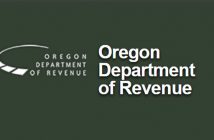The economy has suffered blow after blow the past few years. We’re all familiar with the hardships that have resulted locally and nationally, but there’s a little-publicized part of the story that hits home to thousands of families in Oregon, Washington and across the country: the recession’s impact on Homeowner Associations and their members.
Before the economic downturn in 2008, one to two percent of homeowners typically failed to pay their HOA assessments due to financial hardship or foreclosure. Presently, the percentage of individuals who do not pay their community association assessments has surged to 30 percent or more.
If someone can’t afford their mortgage or assessments, it’s likely they won’t be keeping their property properly maintained, which can hurt property values throughout the community. Associations exist to keep our neighborhoods safe and attractive, so they necessarily become involved when homes aren’t maintained well as a result of foreclosure, abandonment or owner negligence.
Uncared for homes create additional expense for the HOAs, which must take on more work to ensure the properties do not present a physical or financial hazard to neighbors.
Unfortunately, homeowners who do faithfully pay assessments to the association usually end up shouldering a majority of the costs associated with improperly maintained homes, because loss of revenue and higher expenses caused by foreclosures can lead to increased assessments. HOAs can draw on reserves to address operating fund shortages resulting from the foreclosure crisis, but most state laws mandate that a reasonable and detailed repayment plan be established at the time of such borrowings. When the impacts of foreclosures cause reserves to be reduced, HOA boards have little choice but to raise assessments or impose a special assessment – just when most people are watching their budgets very carefully.
Compounding the problem is the rush of investors who purchase distressed homes with cash to flip for profit when the real estate market advances. Often, these investor-owners have little motivation to pay assessments in a timely manner, increasing the difficulty HOA boards have trying to balance the protection of community property values against homeowners’ resistance to dues increases.
To address this challenge, community management companies need to adapt by offering sophisticated new accounting systems to speed financial reporting, improve staff training to ensure that the financials are analyzed correctly, and impose cost-effective methods for handling foreclosed properties and collecting of delinquent assessments. Of course, all this has to be done as HOA boards are pressing management companies to reduce fees in order to drive down their own operating costs. While recessions are terribly difficult, they can turn solid management companies into great ones. It’s the time when operating systems and staff come together to work as efficiently and creatively as possible, resulting in more finely tuned organizations.
There is also a role for state and federal government in dealing with problems created by foreclosures in the nation’s many managed communities. In late January 2011, the Federal Housing Finance Agency (FHFA) issued a troubling proposal that would prohibit government agencies from funding mortgages for homes in managed communities that require “transfer fees,” or one-time assessments owners pay upon joining an HOA. Transfer fees are common practice for HOA’s, and are a key tool for funding operations and keeping rates low, especially during this time of mounting foreclosures. Oregon and Washington HOA leaders are working with our peers across the country to address this issue and limit its potential impact on local homeowners.
Appropriate legislation can protect thousands of Oregon and Washington residents who live in communities managed by HOAs from being hurt even more by foreclosures. Unfortunately, even good legislation is likely to require more reporting and higher levels of regulatory compliance from financially struggling HOAs – so the challenges HOA boards and their management companies face will continue, and will require ever more sophisticated and efficient responses.
Marshall Fant, CMCA and CCAM-Emeritus, is President of Northwest Community Management, a division of The Management Trust, which provides management services to more than 270 communities throughout Oregon, as well as southern and eastern Washington.




